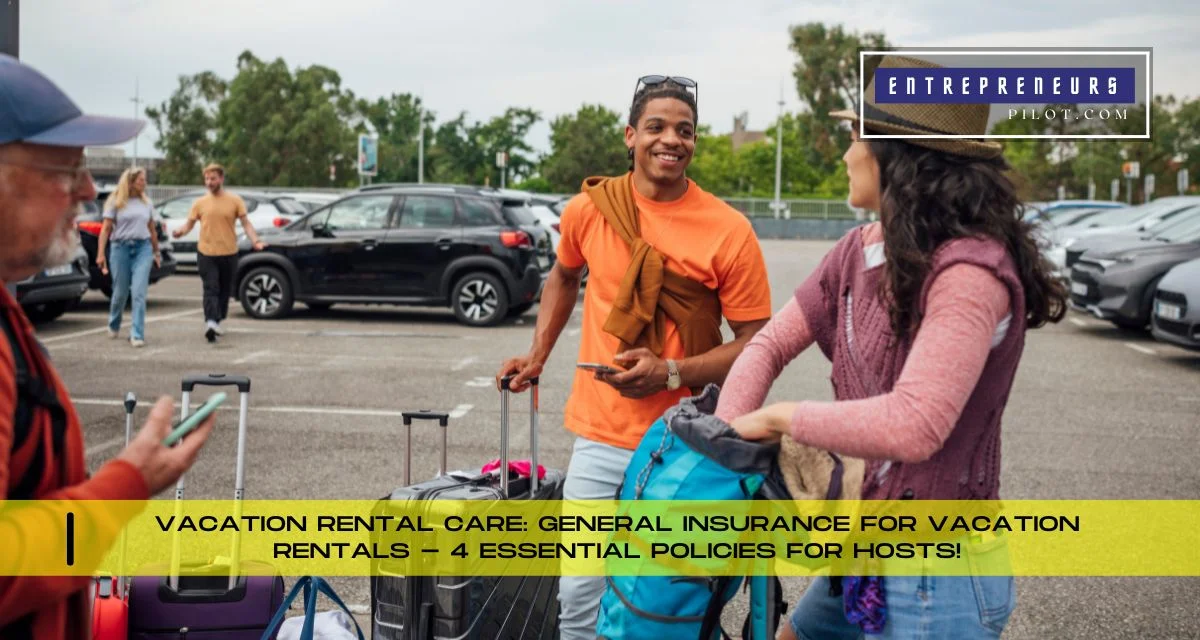Introduction
In the world of vacation rentals, the unexpected is just around the corner. Whether it’s a natural disaster, an accident on the property, or a sudden cancellation, the financial risks can be significant. That’s where general insurance for vacation rentals comes into play, acting as a safety net for hosts. Protecting your investment with the right insurance policies isn’t just smart—it’s essential. But with so many options out there, how do you know which policies are truly vital for your rental? In this guide, we’ll break down the four essential insurance policies every vacation rental host should consider. Let’s dive in, ensuring your peace of mind and securing your financial future in the bustling vacation rental market.
Table of Contents
The Importance of General Insurance for Vacation Rentals
General insurance for vacation rentals is not just a recommendation; it’s a cornerstone of responsible property management. Imagine waking up to news of a natural disaster affecting your property, or a guest having a significant accident during their stay. Without the right insurance, you’re not just risking property damage but also potential legal and financial repercussions that could threaten your business’s viability. Insurance policies designed specifically for vacation rentals can cover a broad spectrum of risks, from property damage and liability to income loss. This coverage ensures that both you and your guests can enjoy a worry-free experience, knowing that many of the potential pitfalls are addressed.
- For Expert Financial Insights And Guidance, You Can Visit Our Sister Site – ArabsGeek.com Now!
- Curiosity Piqued? Dive Into the Most Captivating Financial Content by Visiting Our Homepage!
- Unlock Exclusive Business Opportunities! 🚀 Connect with Us Now at our Email: [email protected]!
Essential Policy #1: Property Damage Insurance
The cornerstone of any solid insurance strategy for vacation rentals is property damage insurance. This policy covers the repair or replacement costs if your property is damaged by guests, natural disasters, or other unforeseen events. Unlike standard homeowner’s insurance, property damage insurance for vacation rentals often includes additional coverage for furnishings and appliances, catering to the unique needs of rental properties. Ensuring that your policy covers the full replacement value of your property and its contents is crucial for full protection.
Essential Policy #2: Liability Insurance
No matter how meticulously you maintain your property, accidents can happen. Liability insurance is your safeguard against claims made by guests for injuries or property damage occurring on your premises. This policy can cover legal fees, medical expenses, and settlement costs, providing crucial financial protection. It’s not just about covering the costs; it’s about peace of mind, knowing that you’re prepared for the unexpected.
Essential Policy #3: Loss of Income Insurance
What happens if a disaster or unforeseen event makes your vacation rental uninhabitable for an extended period? Loss of income insurance, also known as business interruption insurance, compensates you for the income lost during these times. Whether it’s due to extensive repairs after a storm or a mandatory evacuation, this policy ensures that your financial flow isn’t significantly disrupted. It’s an essential layer of security for maintaining your investment’s profitability through thick and thin.
Essential Policy #4: Specialized Coverage Policies
Finally, depending on your property’s location and specific risks, considering specialized coverage policies might be wise. These can include flood insurance, earthquake insurance, and even policies covering cyber threats for online bookings and payments. Tailoring your insurance portfolio to address the unique risks associated with your vacation rental can provide comprehensive protection, leaving no stone unturned.
Conclusion | General Insurance For Vacation Rentals
Securing general insurance for vacation rentals with these four essential policies is not just about mitigating risks—it’s about ensuring the longevity and success of your business. Property damage, liability, loss of income, and specialized coverage policies form a robust safety net, protecting your investment from the unpredictabilities of the vacation rental market. By choosing the right insurance coverage, you can offer a safer, more reliable experience for your guests and safeguard your property against the unforeseen. Remember, the goal is not just to survive unexpected challenges but to thrive despite them.
Frequently Asked Questions
01. What’s the difference between general insurance for vacation rentals and standard homeowner’s insurance?
General insurance for vacation rentals is specifically designed to cover the risks associated with renting out your property, such as guest-related damages, liability issues, and loss of rental income. Standard homeowner’s insurance typically doesn’t provide sufficient coverage for these unique challenges.
02. How much does general insurance for vacation rentals cost?
The cost can vary widely depending on the location, size, and value of your property, as well as the coverage levels you choose. It’s important to get quotes from several providers and carefully compare coverage and premiums.
03. Do I need liability insurance if my property is in a low-risk area?
Yes, liability insurance is essential regardless of your property’s location. Accidents can happen anywhere, and this type of insurance protects you from financial losses due to claims of injury or property damage on your premises.
04. Can I customize my vacation rental insurance policy?
Absolutely. Many insurance providers offer customizable policies that allow you to select the coverage types and levels that best suit your property’s specific needs.
05. Is loss of income insurance worth it?
Considering the potential for natural disasters, unexpected repairs, or other situations that could make your property uninhabitable, loss of income insurance is a wise investment. It helps ensure that your income stream is protected, even when your property can’t be rented out.











